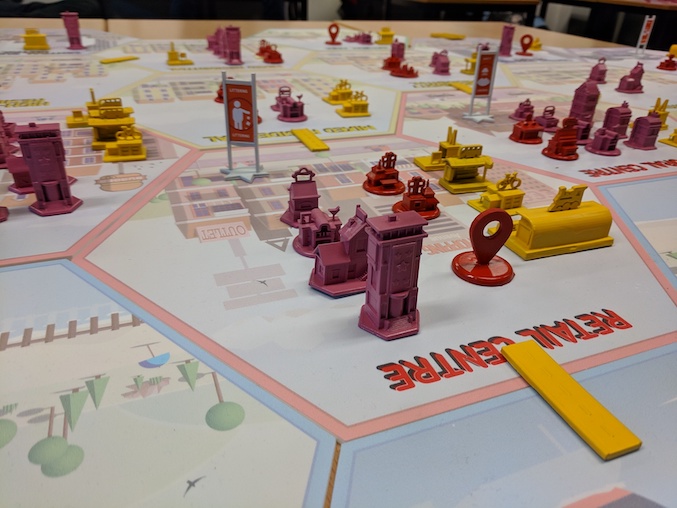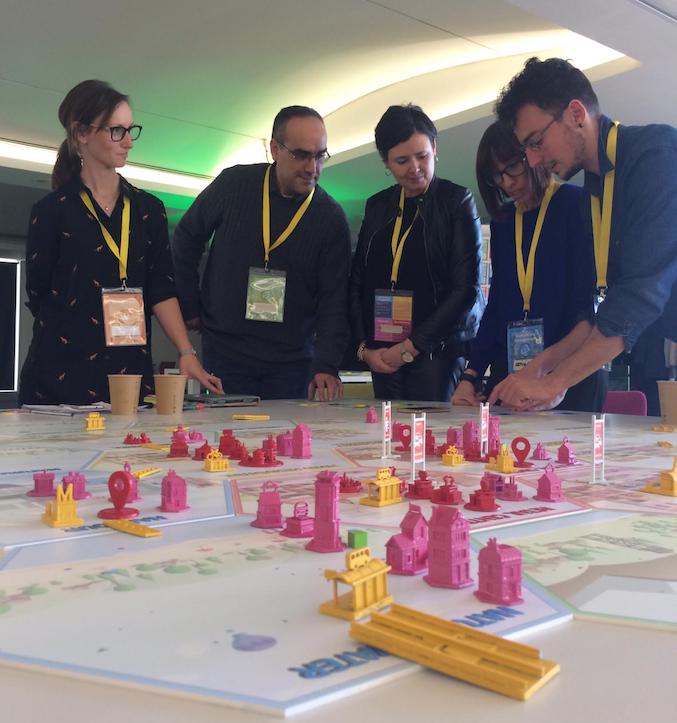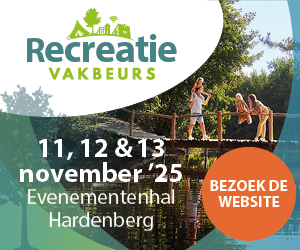Playing for sustainability
Two games that take the environment serious

Recently, we have been experiencing a ‘ludification’ of society that has even entered classrooms, training and business environments, going beyond pure entertainment purposes by actively engaging players in learning about complex topics. Serious games as a multi-faceted and highly flexible method provide opportunities to deepen mutual understanding and to explore new ideas and solutions within a safe environment.
This article introduces two serious games, developed by the Breda University of Applied Sciences, in which players learn to make sustainable decisions.
The Sustainable Tourism Hospitality (SCITHOS) Game
Last year, the UNWTO announced that international arrivals had reached the record high of one billion, accounting for 8.27 trillion US$ and expected to grow further. Besides economic prosperity, tourism is also responsible for 4.5Gt CO2 emissions or 8% of global greenhouse gases due to the keen appetite of consumers for travelling and the affordability of (air) travel. Where these numbers account for tourism impact on the macro-level, impacts are mainly felt on the meso-level in urban or regional ecosystems. Residents of popular destinations experience their environment is dramatically changing in terms of rising house prices and commodification, nuisance and dirt, degradation of the natural environment and waste, visitor pressure of tourism facilities, as well as commercialisation and Disneyfication of tourist sites. Places such as Amsterdam, Barcelona and Venice are increasingly suffering from their popularity among visitors and fear the erosion of liveability and authenticity of their city.
The smart tourism hospitality project (SCTIHOS) deals with urban tourism planning and policy making, focusing on sustainable tourism values based on the triple-bottom line (ecology, economy and equitability) and extended by tourism hospitality values (visitability, liveability and smart citizenship). The project developed smart tools and methods to help tourism stakeholders, citizens and policy makers understand and manage urban tourism planning strategies for their city. This is said to be a challenging endeavour due to the complexity and interlinked processes between transportation, accommodation, tourist attractions, and destination management.
The key concept of the project was the development of a simulation game facilitating social learning and communication practices among tourism stakeholders. The game is a turn-based computer-supported board game that caters for around 10-20 players. Within the course of the project, six game sessions have been facilitated in the partner cities Amsterdam, Darmstadt, Valencia, Belgrade, Stavanger, and Gothenburg that lasted between 3-5 hours and took place between January - March 2019. As these cities face different challenges in regard to tourism and are characterised by a diverse infrastructure, the board game was adaptive to the requirements of each city.
Participants take on the role of tourism area representatives, such as hotel, tourist attraction, transport or marketing. It is then up to the players to decide on a desired sustainable tourism strategy for their city by initiating different actions and proposing policies. A group could for instance propose to build a main tourist attraction centre to attract a certain type of tourist, which is then discussed and supported by the other groups. Quickly, players encounter that not all opinions and plans are consensual.
Two key outcomes of the initial analysis can already be shared. First, players generally experienced having fun during gameplay, as this was a newly introduced method, which facilitated interaction with unacquainted stakeholders. Besides, it was proven that serious gameplay promotes urban tourism planning processes and thus a safe environment to test ideas and concepts. Given the success of the initial game sessions and further requests for gameplay facilitation at conferences and road shows, we want to improve and shape the board game and evaluate possibilities for a digital version in cooperation with CELTH and other project partners.

The Zero Plastic Game
Society was shocked by recent international news that sperm whales with an enormous amount of plastic in their stomachs were found stranded on the shores of Italy and other countries around the world. Record levels of microplastics have been found floating in the Arctic, and traces have even been found in the human body. News items like these show how plastic is endangering life in our oceans and ecosystems. Of the 78 million tonnes annually produced plastic, eventually only 14% returns into the plastic value chain. The rest is burned (14%), ends up in landfills (40%), or even worse, leaks into rivers and oceans (32%). Whereas the main concern is often the recycling system, it is foremost our habits of convenient availability, inexpensiveness, and the lack of alternatives which encourages us to reach for plastic cutlery, coffee cups, water bottles, or vegetables wrapped in plastic.
Illustrating alternatives to plastic materials, the subject of a serious game prototype was developed by six enthusiastic Master of Imagineering students during a Hackathon workshop in December 2018.The challenge was clear that it will not be another waste recycling game, but a fun and informative tool that inspires a plastic free lifestyle. With the support of game designer Thomas Buijtenweg, the students developed a game concept, targeting players around the age of 12 as they appear to be aware of the urgency of the topic and will make their own choices on how they spend their pocket money. Introducing the co-creation idea of Imagineering by applying designresearch together with the target playersof the game, the group was able to develop a prototype board game within 48 hours.
The purpose of the Zero Plastic game is to learn about alternative materials and solutions to plastic. In order to win the game, players need to exchange their plastic items for six sustainable items, for example a shampoo bar, reusable canvas bag, or metal lunch box. Instead of overloading the player with facts and figures, the game allows players to experience the annoyance of plastic in a fun and competitive way. The connections made within the game aim to trigger an active rethinking of individual behaviour, which eventually may lead players to act on the plastic issue in real life.
In order for the game to enter production, a re-iteration and testing phase is a requisite. Currently, the team is working on constructing a consortium for interested stakeholders to invest in the game idea. The prototype was tested during the ‘Expedite Next’ national science festival early May this year in Rotterdam with around 80 children, who largely gave positive feedback on the game. The kids appreciated how clear the message of ‘save plastic, save the world’ came across in the game, meanwhile enjoying to compete with friends to reach the goal of the game.

Acknowledgements
Smart City Hospitality (SCITHOS) is a joint programming initiative of ERANET-JPI Urban Europe and co-funded by NOW and CELTH (Tourism Research Centre) and coordinated by the BUas Academy for Hospitality and Facility Management. Other partners in the SCITHOS project are Western Norway Research University, Worldline, and MODUL University Vienna. The concept and prototype of the Zero Plastic Game has been developed during a 3-day hackathon event organised by the Master Imagineering program. The master students Annika Tielmann, Monique Schulte van Alphen, Tays Defaveri, Vivian Meine and Jeroen Snijder, as well as Performatory students Tom Harms. |
Dit artikel is eerder verschenen in het themanummer Leisure for a better world van Uncover, het magazine van de Academy for Leisure & Events van de Breda University of Applied Sciences.


































































